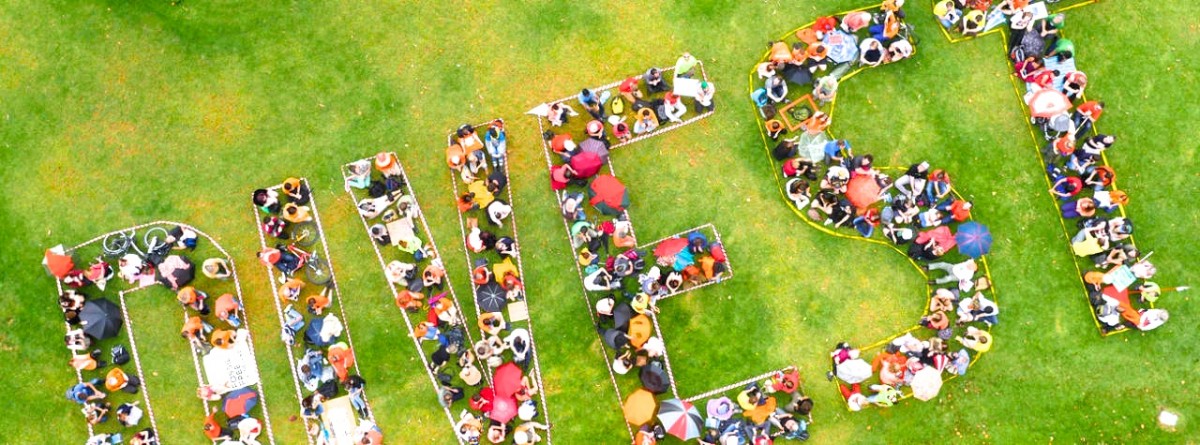
More than 500 institutions representing about $3.4 trillion in assets have agreed to sell their investments in fossil fuel companies, divestment leaders announced last week, a nearly 24 percent increase since the movement last announced its commitment list in September.
European insurer Allianz, the city of Oslo, Norway, and the London School of Economics are among the latest institutions, communities and individuals to pledge to divest at least partially from coal, oil and natural gas companies, members of the green group 350.org and nonprofit Divest-Invest said at a press conference in Paris.
The campaign began in earnest in 2014 with 181 institutions and more than 650 individuals representing at least $50 billion in assets, and has gathered participants steadily since.
"A growing number of investors, representing a growing number of capital do not want to be associated with [the fossil fuel] industry any longer," May Boeve, executive director of 350.org, said at the press event. "It demonstrates that investors are taking climate risk extremely seriously."
The exact amount of capital already divested from fossil fuels can't be determined because of differing levels of divestment commitment-related disclosure. But Boeve explained that standard portfolios contain about 3.7 percent of assets related to fossil fuels.
The status update on the fast-growing and diversifying campaign coincides with the United Nations climate talks in Paris, where officials from across the world are negotiating a plan to prevent the earth from warming above 2 degrees Celsius compared to preindustrial levels. To reign warming in, leaders agree that the world needs to quickly transition away from carbon-intensive fuels towards clean energy alternatives.
"As governments from around the world come together to set the framework in place for moving us quickly into a fossil-fuel free era, those assets are going to become less and less valuable," Stephen Heintz, president of the Rockefeller Brothers Fund, said on Wednesday.
Groups are choosing to divest, he said, both because they view it as a "moral imperative" and because "it makes economic sense." These reasons factored into the Rockefeller Fund’s decision to join the movement in September 2014.
"Oil is the new tobacco – as the #divestment movement becomes stronger and stronger, oil, gas and coal companies get weaker and weaker," Greenpeace executive director Kumi Naidoo wrote on Twitter in response to the recent divestment news.
In France, support for divestment has surged as the climate talks grew closer. Bordeaux, Saint-Denis and Rannes are among 19 French cities to endorse divestment in recent months. The French parliament also endorsed the campaign, and activists hope the country's leaders will eventually adopt this policy as law.
Also, the French Ensemble Foundation has pledged to divest its holdings in all fossil fuels. Ensemble's two co-founders also said they would divest their personal investments from companies associated with carbon-intensive fuels.
Coal companies are by far the most targeted sector of the divestment campaign, as signaled by Allianz' divestment decision last week. The German-based insurer has committed to culling coal investments worth $225 million Euros from its portfolio by March 2016. Mining companies with more than 30 percent of their revenue tied to coal and energy companies producing more than 30 percent of their energy from coal are being affected.
Earlier in the year, California lawmakers passed a rule ordering the state's largest pension funds to rid their investments in coal. Several major banks including Bank of America and Citigroup have vowed to stop financing coal companies.
For many of these companies, divesting from fossil fuels is being coupled with investing in renewable energy. That's why Allianz said it plans to double its investments in clean energy projects.
"We think investing is even more important" than divestment, Nicolai Tewes, senior vice president of corporate affairs at Allianz, told InsideClimate News. "But there are not enough projects around… That's one message for Paris: we need more support to generate more projects that can be invested in than we see currently at the market."
Since the international climate negotiations kicked off on Monday, there have been a flood of new clean energy announcements including Bill Gates launching a multi billion-dollar fund to grow renewable sources, France and India jointly creating a new solar alliance, and 20 countries including the U.S. vowing to double their spending on low-carbon technologies in five years.
3 WAYS TO SHOW YOUR SUPPORT
- Log in to post comments












